Now, first, before we get this legal deep dive going, let’s be clear. We haven’t seen Professor Turley call for jury nullification—not even by a proverbial wink. What we are saying is that what he is documenting is enough for us to say if this author was on the jury, we would engage in jury nullification. Why? In order to vindicate Trump’s constitutional rights.
Mr. Turley published a thread that started with this post:
The Hill is out with my column on the closing arguments scheduled for next week in the Trump trial. A hung jury seems the most likely of the outcomes, but much will depend on the final jury instructions...https://t.co/ReJLUKgYPg
— Jonathan Turley (@JonathanTurley) May 25, 2024
And let’s start with the text of the amendment that we will be focusing on:
In all criminal prosecutions, the accused shall enjoy the right to a speedy and public trial, by an impartial jury of the State and district wherein the crime shall have been committed, which district shall have been previously ascertained by law, and to be informed of the nature and cause of the accusation; to be confronted with the witnesses against him; to have compulsory process for obtaining witnesses in his favor, and to have the Assistance of Counsel for his defence.
There are two particular rights in that jumble that we want you to focus on. The first is that ‘In all criminal prosecutions, the accused shall enjoy the right to a … trial, by an impartial jury.’ Second, it states that the accused also has a right ‘to be informed of the nature and cause of the accusation’—in other words, you have a right to know the charges against you.
And that right is not merely to be told what specific crime you are accused of. It is not sufficient under that clause to say ‘the defendant committed murder, in the last ten years, against someone, somewhere.’ If you faced a charge like that, you might literally have no idea what they are talking about, and have no ability to prepare a defense. That is why you have a constitutional right to know in detail what you are being accused of.
Except, according to Turley, Alvin Bragg hasn’t had to do that. Trump is being charged with falsifying records in order to cover up another crime. We call that other crime a ‘predicate offense,’ and that has to be filled in, too. And it hasn’t. From the article:
Originally, Bragg vaguely referenced four crimes and there have been months of confusion was to what he was specifically alleging as his criminal theories. Even legal analysts on CNN and MSNBC have continued to question the specific allegations against Trump as we head into closing arguments.
As it stands, there are three crimes that have been referenced by prosecutors: state and federal election violations and taxation violations.
And now we are learning that the jury doesn’t even have to be unanimous on this point—something our editor alluded to in a prior post. From the Turley article:
Merchan has even ruled that the jurors can disagree on what actually occurred in terms of the second crime. This means there could be three groups of four jurors, with one believing that there was a conspiracy to conceal a state election violation, another believing there was a federal election violation (which Bragg cannot enforce), and a third believing there was a tax violation, respectively. Nonetheless, Merchan will treat that as a unanimous verdict.
As recently as 2020, the Supreme Court held that you had a right to a unanimous verdict in state court in Ramos v. Louisiana, 140 S. Ct. 1390 (2020).
And to unpack that a little more, one has to understand that as far back as 1833 in Barron v. Baltimore, 32 US 243 (1833), the Supreme Court has held as an original matter that the Bill of Rights does not apply to the states. Thus in 1833, if federal officers take your property without just compensation, the Fifth Amendment has been violated, but if it is done by state officers, there is no Federal Constitutional violation (but it might still violate state law).
Now, we are going to gloss over more than a century of arguments and doctrines in constitutional law, but the short version is that the Supreme Court unanimously agrees today that this was changed by the Fourteenth Amendment. They unanimously agree that when the framers were drafting the Fourteenth Amendment, about three decades after Barron, they took the opportunity to make it so the first eight amendments of the Bill of Rights applied to the states. There has been some debate as to what part of the Fourteenth Amendment does this. Clarence Thomas has argued that it was done in the privileges and immunities clause, which reads:
No State shall make or enforce any law which shall abridge the privileges or immunities of citizens of the United States;
Thomas has argued that ‘privileges and immunities’ refers to the rights protected by the Bill of Rights. Sometimes rights are referred to as a ‘privilege’ in the law—such as the privilege against self-incrimination. This is the opposite of how people normally talk, pretending that a mere privilege is beneath a right.
But Thomas is one purist voice on the Supreme Court and the rest of the Supreme Court goes by the Due Process Clause, which says
‘No State shall … deprive any person of life, liberty, or property, without due process of law.’
You might reasonably say ‘what does it matter, which part does the incorporation? What the difference?’ The difference is that Thomas argues that if you go by the privileges and immunities clause, the first eight amendments Bill of Rights is incorporated wholesale, so that there is no difference between how those amendments applies to the states, while the Due Process has allowed the Supreme Court to pick and choose.
So, for instance, as of this writing, while you have a right to an indictment under the Fifth Amendment on the federal level, the Supreme Court hasn’t found there is such a right on the state level and the Supreme Court hasn’t said you had a state right to a jury in a civil case where the dispute is over more than twenty dollars, as guaranteed by the Seventh Amendment. We admit we like Thomas’ approach because it is final and clean, but he hasn’t won that argument just yet.
Thus, in Ramos v. Louisiana, mentioned above, that was the first time the Supreme Court held that jury verdicts had to be unanimous in state court, because it was the first time the federal right to unanimity was incorporated to the states. Ramos was convicted of a crime where the verdict was 10-2, two voting to acquit. That should have been enough to hang the jury, but in Louisiana, they allowed for 10-2 convictions. The Supreme Court said that this was unconstitutional.
In the earlier post, Greta Van Susteren also mentioned Richardson v. United States, 526 U.S. 813 (1999). The flaw in her citation is that it wasn’t even referring to a constitutional case. The Court was merely interpreting a federal statute. Now, the Constitution can influence how a statute is interpreted—the Supreme Court has regularly said they will avoid interpretations of statutes that violate the Constitution, if they can. Thus, that case says at one point, when arguing for how to interpret the federal criminal statute at issue, that
this Court has indicated that the Constitution itself limits a State's power to define crimes in ways that would permit juries to convict while disagreeing about means, at least where that definition risks serious unfairness and lacks support in history or tradition.
But we think the better argument is from Ramos itself. What is the point in requiring unanimity if the state can defeat it by allowing the jury to disagree about what predicate crime occurred? Under Merchan’s approach, Bragg could have claimed that Trump was trying to cover up twelve different crimes, and then each juror could have believed that there was proof beyond a reasonable doubt that Trump committed a different predicate offense and rejecting all others. To illustrate, imagine if there are twelve different predicate acts. Then:
Juror A might find that there is proof beyond a reasonable doubt that Trump committed predicate act 1, but that there isn’t sufficient proof for the rest.
Juror B might find that there is proof beyond a reasonable doubt that Trump committed predicate act 2, but that there isn’t sufficient proof for the rest.
Juror C might find that there is proof beyond a reasonable doubt that Trump committed predicate act 3, but that there isn’t sufficient proof for the rest.
And so on, so that no two jurors agree that Trump committed any one predicate act. It defeats the entire point of unanimity to allow this to happen.
As Turley said:
...Bragg’s legal vision for non-objective indictments was greatly advanced by Judge Juan Merchan, who will allow the jury to reach different rulings on what crime is actually evident in Bragg’s paint splatters.
— Jonathan Turley (@JonathanTurley) May 25, 2024
So, that is two violations of Trump’s constitutional rights. And if they can do it to him, they can do it to you.
But throughout this case, legal observers have missed another important point. This entire case turns on the notion that by not accusing Trump of having an affair with her, Stormy Daniels committed an in-kind contribution to the Trump campaign. The value of that contribution was set by the non-disclosure agreement and therefore reimbursing that value was a campaign expense.
All of which runs straight into the teeth of another Supreme Court decision. You might’ve heard of it: Citizens United v. Federal Election Com'n, 558 U.S. 310 (2010). There is a lot of outright lying misinformation about this case, so let’s sum up what actually happened in that case—and if you don’t believe us, we invite you to actually read the decision. Citizens United made a documentary called ‘Hillary: The Movie.’ We haven’t actually seen it but the courts viewed it as basically arguing that Hillary Clinton was unfit for any federal office, released when she was trying to win the Democratic Nomination for president in the 2008 cycle. Mind you, everyone interpreted the documentary this way, including the justices who found Citizens United’s favor. But because it was interpreted as encouraging people to vote against Hilldog, the F.E.C. said that it was a crime to make or advertise this movie. And the Supreme Court said such expressive activity cannot be a crime, striking down that part of campaign finance law.
In other words, contrary to what many have claimed about the decision, it did not say that money is speech. A prior Supreme Court decision—Buckley v. Valeo, 424 U.S. 1 (1976)—said so, as we outlined here, and they were correct, even if we weren’t impressed with the way the Court expressed itself. As we wrote:
If I was writing the opinion in Buckley, I would point out that from literally the beginning of this republic, we have had a form of media that has relied on money: Printed materials. You know, books, pamphlets and newspapers … that sort of thing. It was the first mass media and it ran on money. I mean, it was theoretically possible for a person to literally make their own paper (grow the trees, chop them down, turn them into paper), make their own ink, make their own press, do their own reporting, writing and editing and then even do their own distribution, but I am pretty sure literally no one ever did that. No, I'm pretty sure every newspaper in history has been, at least to some degree, a group effort using money to buy necessities like the printing press itself, paper, ink and so on, and often using employees to help fill the paper with content and distribute the paper itself—usually to sell for money. Even where the words of a single author is being published, like in a book or pamphlet, I don’t think they were making the ink and paper themselves. Money and commerce has always been essential to the press—as it is for all mass media. For that reason, freedom of expression requires the free flow of money.
We go on, but the point is there are few forms of expression you can engage in without spending money—even if you are not always aware that you are spending it. You might not think you are spending money when you post on Twitter/X, for instance, but you are having to use a device to communicate with the Internet that usually costs money and Internet access itself costs money. So, while you can express yourself without spending money, by simply shouting as loud as you can, if you want to express yourself effectively in today’s world, you do need money.
So, the Supreme Court correctly held that money is speech, and that led to an important point when we explained what actually happened in Citizen United:
So, while Citizens United didn’t say money is speech, it is important to understand that the sentiment is correct: Limiting political expenditures effectively limits speech. This didn’t stop the Supreme Court from putting some limitations on political expenditures, but it didn’t let Congress have carte blanche over the topic, either.
And, in fact, [the] McCain-Feingold [legislation] flipped that concept on its head. The logic of the law was (paraphrase) ‘if money is speech, then speech is money. Since we can limit political spending, we can also limit political speech.’ That law represented a dangerous innovation against freedom of expression that the Supreme Court rightfully struck down.
In other words, in Citizens United, the F.E.C. treated the organization Citizens United’s expression as an in-kind contribution to the candidates running against Hilldog and the Supreme Court said you couldn’t do that.
And it’s important to remember that freedom of expression includes the freedom not to express yourself, a point affirmed just in the last term before the Supreme Court. You have a right to express your opinion, of course, but you also have a right under the First Amendment not to express yourself, in part or in whole. It is not just criminal defendants who have a right to remain silent.
So, the government cannot treat a third party speaking out against Trump—or not speaking out against him—as an in-kind contribution to a campaign. And that is the allegation here: Stormy Daniels provided an in-kind campaign contribution by not accusing Trump of having an affair with her before the election, because of a non-disclosure agreement, and therefore the cost of that agreement that should have been counted as a campaign expense.
So, you have three constitutional violations in our eyes, in this case:
1. Failure to inform Trump of the nature of the charges, in violation of the Sixth Amendment.
2. Failure to require true unanimity in a jury verdict, in violation of the Sixth Amendment.
3. Treating Daniels’ exercise of freedom of expression (by not speaking) as an in-kind contribution to the Trump campaign, in violation of the First Amendment.
And while Turley doesn’t even hint at it, it makes us think that if we were on that jury we would have to engage in jury nullification in order to enforce the highest law in the land: The United States Constitution.
You see, there are two types of jury nullification. One type has a very dubious heritage. That is letting a person go who you know is guilty because of some consideration other than the law. So, for instance, if a juror refuses to convict a person clearly guilty of vandalizing a priceless work of art, because the vandal was doing this to protest petroleum and the juror agrees with their sentiment, that is that first kind of jury nullification. And, of course, that has a checkered history because this often shielded KKK types from going to prison when they committed crimes against black people. For instance, this is believed to have been the reason why the first trial of Medgar Evers’ killer, Byron De La Beckwith, ended in a hung jury. (He was later retried in 1994 and convicted.)
But we aren’t talking about that kind of jury nullification.
We are talking about a more respectable kind of jury nullification which says simply this: The jury can interpret for itself what the law is and disregard the instructions of the court if it believes it is contrary to the law.
This kind of jury nullification dates back to before the republic to the famous Zenger trial. Peter Zenger had written articles critical of New York’s colonial governor William Cosby …
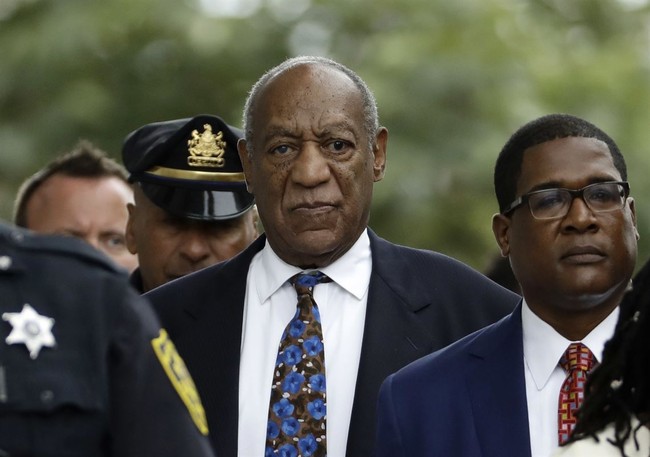 … no, not that William Cosby. But in 1735, Zenger was arrested and placed on trial for seditious libel, which amounts more or less libeling a government official. In other words, he didn’t actually have to say anything tending to foment rebellion—defaming the government official was sufficient. At trial, his lawyers attempted to raise truth as a defense, but the court wouldn’t allow it. Thus the charge amounted to nothing more than ‘if he criticized the governor, he goes to prison.’ So, his lawyers argued that since the government had not allowed them to offer truth as a defense, the jury should find that the government had failed to prove its case. The jury acquitted Zenger within ten minutes and it is generally believed that the nullification argument won the day.
… no, not that William Cosby. But in 1735, Zenger was arrested and placed on trial for seditious libel, which amounts more or less libeling a government official. In other words, he didn’t actually have to say anything tending to foment rebellion—defaming the government official was sufficient. At trial, his lawyers attempted to raise truth as a defense, but the court wouldn’t allow it. Thus the charge amounted to nothing more than ‘if he criticized the governor, he goes to prison.’ So, his lawyers argued that since the government had not allowed them to offer truth as a defense, the jury should find that the government had failed to prove its case. The jury acquitted Zenger within ten minutes and it is generally believed that the nullification argument won the day.
We doubt that Trump’s lawyers could argue for jury nullification but nothing stops this author from saying we would engage in nullification if we were on the jury. Trump’s right to know the nature of his charges was violated, therefore if we were on the jury, we would vote to acquit because he didn’t have a fair opportunity to prepare his defense. If the jury wishes to convict Trump without agreeing on what the predicate charge actually is, we would refuse to go along with this violation of his right to a unanimous verdict—we would accept nothing less than unanimity on the predicate acts. And for every charge based on the theory that refusing to speak is effectively a contribution to his campaign, we would refuse to convict because it would violate the First Amendment. If that led us to hang the jury, so be it.
Some feel otherwise. For instance, this Twitter/X user …
Trump's Forbidden Legal Strategy: What New York Law Won't Let the Jury Do - Just Security - https://t.co/FtMNGaOdkb #GoogleAlerts
— MOIZ ESUFALLY (@moizesufally) April 16, 2024
…links to a piece called ‘Trump’s Forbidden Legal Strategy: What New York Law Won’t Let the Jury Do’ which admits that his legal team hasn’t actually promoted jury nullification and claims it can’t with this passage:
That Trump’s attorneys did not fight the judge on these points should not be surprising: New York law would not allow them to ask a jury to acquit on that basis. The state’s highest court made that principle clear in one of the most sensational cases in the Big Apple’s modern history: that of Bernie Goetz, the man who shot four Black teenagers on the New York City subway.
In 1988, the New York Court of Appeals found the ‘mercy-dispensing power’ of nullification ‘is not a legally sanctioned function of the jury.’ The judge’s instruction to the jury was that they ‘must’ find him guilty, if they found he committed all of the elements of his crimes beyond a reasonable doubt. Goetz challenged his conviction based on that instruction, but the state’s top court found the judge made the right call.
Except if you understand that there are two types of jury nullification, you might spot the problem in their argument. We have read the decision and the ‘mercy-dispensing’ type of nullification that case referred to is the first kind of nullification we mentioned—nullification for non-legal reasons. It doesn’t address the Zenger precedent—a New York precedent—that a jury can interpret the law for themselves. We have found no case in New York that says that the jury is not allowed to interpret the law for themselves. So if we sat on the jury, we see no reason why we wouldn’t interpret the law for ourselves and refuse to convict Trump.
Some reactions to Turley’s thread:
This is insane that jury charge won’t require unanimity in the crime alleged. What a complete kangaroo court https://t.co/sWA40cxIky
— Robert Henneke (@robhenneke) May 25, 2024
There was a dispute about how likely a hung jury is:
I'm not so sure ....
— Lawyerforlaws (@lawyer4laws) May 25, 2024
Joe Biden is already practicing his speech
regarding the Verdict ...🤔😉
Biden plans to address Trump ‘hush money’ verdict from the White House https://t.co/dui2Id1n49 pic.twitter.com/Yiiy0ZjtIX
If there is a hung jury, or it takes time to convince one or more stragglers, the verdict might take more than a week.
And one is more optimistic than Turley.
First, are any of these TV attorney's paying attention to the crowds that are at the courthouse in Manhattan in support for Trump?
— Wendy Patterson (@wendyp4545) May 25, 2024
Have they lost faith in their own profession so much that the two attorney's sitting on the jury will be unable to make a case to their counterparts… https://t.co/zwPqW97Smm
The cut off text reads:
Have they lost faith in their own profession so much that the two attorney's sitting on the jury will be unable to make a case to their counterparts on the failure for the prosecution to meet their burden?
These TV attorney's had 20 days to hash over, debate and consider and finally they went from Trump has zero chance to now a split verdict.
Never have I heard them make the case looking at the jury that a not guilty verdict is possible.
Are they right? Maybe but I doubt it. I have more confidence in the jury than they do.
We honestly hope Ms. Patterson is right, but we’ll take a hung jury.
Who cares you’re a shill https://t.co/zVz3HtT9gH
— What Jeaus Would Say 🇺🇸🇺🇦🌻🌻☮️☮️☮️ (@sul68115) May 25, 2024
You cared enough to respond.
Most likely verdict is "guilty" on all counts. The trial has been rigged from start to finish. A hung jury is the best we can hope for. I emphasize the word "hope". https://t.co/esE3vqSQUN
— Jack Grant Penn 🧭 (@JackLaw48203440) May 26, 2024
I'm expecting a conviction.
— Popeye Doyle (@Popeye__Doyle) May 25, 2024
Trump's problems are these:
1. It's NYC; all the jurors likely hate him.
2. Even if they don't, most of their friends and family do, and they won't risk being pariahs at home.
3. The judge in the case is engineering a conviction by barring testimony. https://t.co/f1CFyA0KjQ
We will know next week if Prof Turley is a fair-minded legal scholar or a partisan hack. https://t.co/zNAqJ1wVtt
— 杨涵 Han Yang (@polijunkie_aus) May 25, 2024
We can’t imagine how. No rational person thinks that predicting how twelve humans will behave is an exact science.
In any case, Turley is plainly a fair minded person, and this is obvious to anyone who has paid attention to him for a while. Even when we disagree with him, we believe the disagreement is honest.
It’s a sham trial in every way; bad law, bad witnesses, bad prosecutors, bad judge, bad venue… the only factor left open is the jury. As an observer of history, though, it’s fascinating to watch. Kind of like having ringside seats to watch Rome burn.
— Mark Thompson 🇺🇸 (@marktmt) May 25, 2024
The jury instructions, as I noted two weeks ago, are the last piece of the conviction recipe. The judge knows he can direct this verdict with improper instructions (see e.g. Bob McDonell). And, all the Dems want is a conviction ... as an appeal cannot overturn it before the… https://t.co/GcpwnugAm6
— Rich Kelsey (@RichKelsey) May 25, 2024
The cut off text reads: ‘… as an appeal cannot overturn it before the election.’
And sadly, he might be right.
And it briefly raises an additional reason why we would probably engage in jury nullification if we were on the jury. We all know that this is done purely out of politics. Even CNN's Fareed Zakaria says as much, starting at about the 3:35 mark:
Fareed Zakaria delivers bad news to Democrats.
— Citizen Free Press (@CitizenFreePres) May 12, 2024
'It is very unlikely that Biden can win this race.'pic.twitter.com/h0nHT2xhHO
... and prosecuting a person based on their politics violates the First Amendment, too.
It is also a reason why a person who might not like Trump very much should want to see him win in November. Alvin Bragg doesn’t get to tell us who we can vote for. Neither does Jack Smith or Fani Willis, and neither do any of the judges involved in their respective cases. But these prosecutors are all trying to use the courts to influence the election.
It’s bad enough that they have done this. But you know what would be even worse? If it succeeded, because once they see that this works, they will do again, and again.

















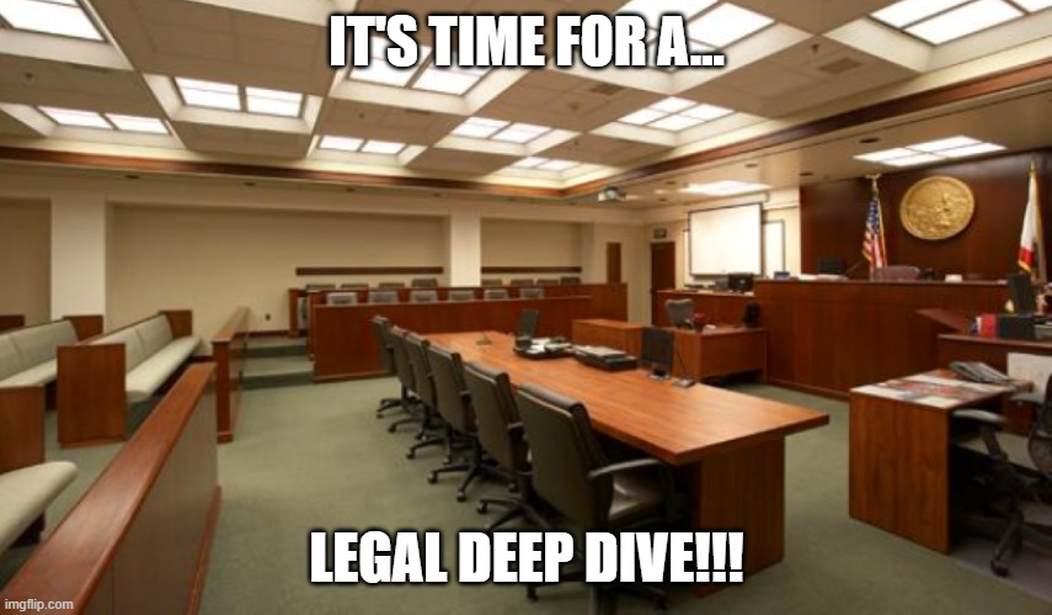
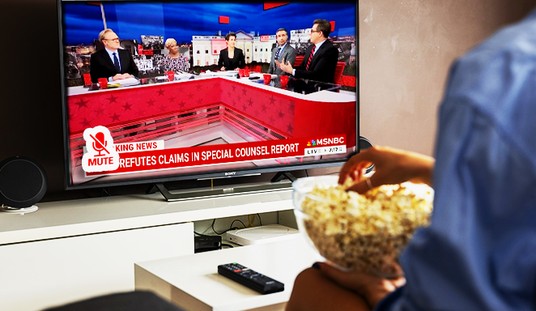

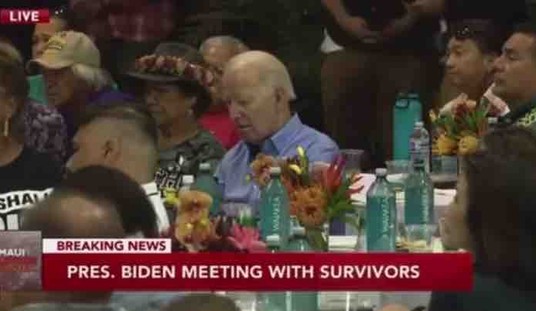
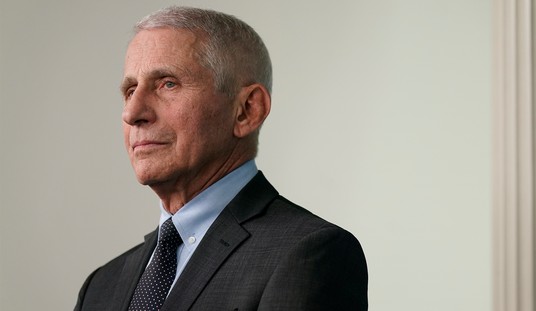

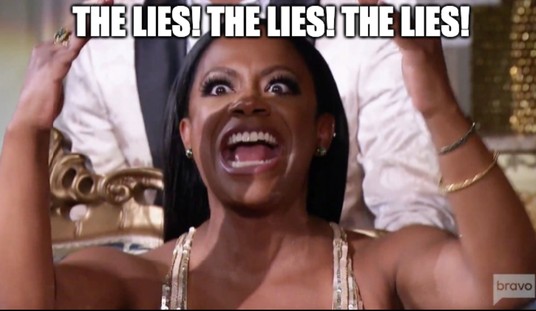

Join the conversation as a VIP Member